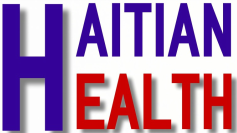|
A research study on low and lower-middle-income countries found a significantly positive association between longevity and the following socio-ecological determinants: Gross national income, physician density and mean years of schooling [1]. In a more recent study [2], internet user rate was also positively and statistically significantly associated with life expectancy in more than 178 countries. The countries where the average number of people lived longer had the highest frequency of people with access to internet-based health information. Comparatively, although smartphone ownership and internet usage has been increasing worldwide, particularly in low and lower-middle-income countries [3], access to health information was found to be restricted [4, 5] and less prevalent [6] among certain users. As Napoli and Obar (2014) [4] indicated,
Memory, storage capacity, and speed. The internet performance tends to be faster when using a Personal Computer (PC) than a handheld device (e.g., mobile phone). Content availability. Limited information is sometimes available through a handheld device in comparison to a PC. Some websites can only be viewed on a PC due to the lack of an existing mobile version. Furthermore, “a focus-group study of nearly 100 early adopters of mobile devices in Kenya found that users had very little access to locally produced mobile-ready content. As a result, the users studied tended to spend the bulk of their time with international platforms such as Facebook, Wikipedia, and YouTube (Souter 2011). Thus, even as users in developing nations gain access to the Internet via mobile devices, they still suffer from a relative lack of mobile-ready content that directly addresses their specific needs and interests.” Information seeking. Mobile devices are typically used for leisure and entertaining activities. Skill Sets Across Platforms. Generally speaking, individuals who first learned how to use a PC are more likely to take full advantage of their mobile devices. Whereas, the majority of new internet users who first learned how to use a mobile device do not take full access of the available internet services that could benefit their well-being and future. As it stands, health information is widely available on the web, but not to all internet users. More and more people are first-time users of handheld devices with many advantages and disadvantages compared to Personal Computers (PCs). Improving population health will entail reaching out strategically to this segment of the population with limited health information access and literacy and facilitating their use of the internet and social media for health information consumption. References 1. Mondal, M. N. I., & Shitan, M. (2014). Relative importance of demographic, socioeconomic and health factors on life expectancy in low-and lower-middle-income countries. Journal of Epidemiology, 24(2), 117-124. doi: 10.2188/jea.JE20130059 2. Kim, J. I., & Kim, G. (2016). Country-level socioeconomic indicators associated with healthy life expectancy: Income, urbanization, schooling, and internet users: 2000–2012. Social Indicators Research, 129(1), 391-402. doi: doi.org/10.1007/s1120 3. Poushter, J. (2016). Smartphone ownership and internet usage continues to climb in emerging economies. Pew Research Center, 22. Retrieved from http://s1.pulso.cl/wp-content/uploads/2016/02/2258581.pdf 4. Napoli, P. M., & Obar, J. A. (2014). The emerging mobile Internet underclass: A critique of mobile Internet access. The Information Society, 30(5), 323-334. doi.org/10.1080/01972243.2014.944726 5. Pearce, K. E., & Rice, R. E. (2013). Digital divides from access to activities: Comparing mobile and personal computer Internet users. Journal of Communication, 63(4), 721-744. doi: 10.1111/jcom.12045 6. Sey, A., & Ortoleva, P. (2014). All work and no play? Judging the uses of mobile phones in developing countries. Information Technologies & International Development, 10(3), 1-17. Retrieved from http://itidjournal.org/index.php/itid/article/view/1280
0 Comments
Leave a Reply. |
Mickelder Kercy, M.D. M.S.I learned about the art and science of medicine and was introduced to the community and population-based aspects of public health at the Université Notre Dame d'Haiti. My early practical interventions in the field of public health during medical residency in Haiti fostered my interest in pursuing additional academic training in public health. At Columbia University in the City of New York, I specialized in Public Health with a minor focus on Community Health Education. My special interest is in non-communicable chronic diseases, and the social-ecological approach to health education and promotion in secular and faith-based communities. Archives
October 2017
Categories
All
To subscribe to our blog and receive notifications of new posts by email
|



 RSS Feed
RSS Feed
